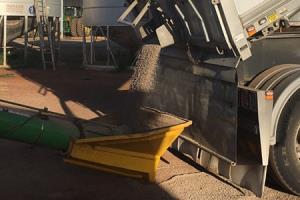Guano Australia offers a cost-effective solution for reducing your need for synthetic chemical fertilisers. Contact us to learn more.
Over the past two years, here at Guano Australia we have experienced a noticeable increase in enquiries that starts with “how do I move away from synthetic chemical fertilisers?”
These farmers asking the questions are aware their reliance on synthetic chemical fertilisers [SCF] is impacting on their soil health and they are also aware that the application rates for the same crop yields have been increasing over time.
However, they are also aware they need to source alternatives to SCF at an economical and timely manner whilst also being able to utilise existing plant and machinery.
Thirdly farmers have a sense of confusion as they try to change their crop input paradigm. Sellers of SCF can create a stigma attached to non SCF products while the sellers and promoters of non SCF can cause confusion in the market with the wide range of products they have available.
To help clear up some of the confusion we find that it important to match what you are replacing with what is available. Meaning that in the short term we need to produce a profitable crop and in the mid to longer term I need to improve my soil health.
This path while requiring structured planning can also be detoured by misinformation and poor recommendations that create barriers to change.
By raising the question “do I need to reduce or change my SCF use” raises many more questions. We find that people asking the questions are worried about supply, cost and application.
Our company, like many other suppliers of non SCF, has increased and improved our supply chains over the past 5 to 10 years. These changes have improved the timely delivery of product to farmers or resellers making certainty of supply far easier than in the past.
The issue of cost is a major driver in farm decision making. This is why the application of nutrients supplied by non SCF is different in many respects to that of SCF.
The use of citric soluble phosphorus verses water soluble fertiliser or elemental sulphur verses chemical sulphur require different rates and possibly different timing of application.
Usually the total number of units applied by non SCF can be lower than that supplied by SCF. This is due to how these elements are used by the plant and how they behave in the soil.
Another factor in costings is that most SCF provide two or three elements while with Non SCF they contain calcium, silica and trace minerals that all need to be taken into account when assessing a dollar/hectare cost.
In a lot of cases clients remark that the “recommendations per hectare of SCF have increased year in, year out “ and it is this increase usage to achieve the same production that is driving them to question their current fertiliser program.

This need may be driven by farmer groups such as those focused on reduced or no tillage, or environmental factors around nutrient run off or even the observation that product quality and taste is reducing.
Thirdly the question of application is raised, most enquiries are not aware that non SCF are granulated and can be handled and applied with standard industry spreaders and planters.
In summary the path from moving away from a 100% reliance on chemical fertilisers to more sustainable models isn’t that difficult, it’s not the physical issues that are the problem, it is the confusion in taking the first step and then planning the change by either a product substitution or product blending approach to solve short term issues while working on the longer term plan that involves change in management in soil health and crop resilience.
© 2020 Guano Australia Pty Ltd. All rights reserved.

